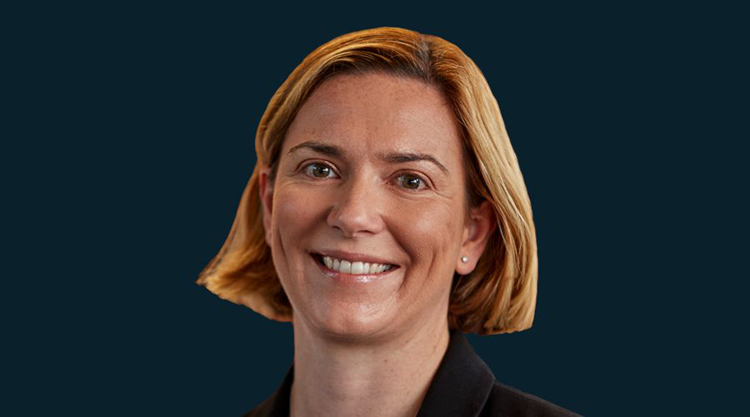The new complexities and rewards in ESG investing
With engagement between their fund managers – either internal or external – and investee companies increasingly being demanded by institutional investors, new complexities are emerging in the study of ESG principles and practice. The evolution of ESG investing is picking up speed.
While they are interlinked, there is a lot more work going into the ‘E’ and ‘S’ now than, say 18 months ago. And the increasing evidence is that this leads to better performance through greater efficiencies from investee companies.
In two webinars which are included in a seven-part series on the topic, ‘Leading the Stewardship & ESG Evolution’, Martin Currie Australia traces the journey the company and the industry is making. The full ‘Leading the Stewardship & ESG Evolution’ series can be accessed here:
Megan Scott, Martin Currie Australia’s COO, says that when the firm started to integrate ESG ratings across its portfolios in 2009, they were fairly basic. For instance, they used MSCI ratings to help with exclusions, but have since developed their own ratings which identify specific areas of focus. “This ultimately assists us in how we engage with companies and put the information directly into valuation assessments… It is much more comprehensive,” she says.
One of the big challenges, she believes, is that there is so much data the process can be overwhelming, since you want to look mainly at what are the material issues facing a company. “The team and culture play a big part. We’ve done a lot of work on building the passion among investors. She works closely with David Sheasby, Edinburgh-based head of stewardship and ESG, as well as local portfolio managers, such as Will Baylis, the portfolio manager for the Australian ‘Sustainable Equity Strategy’ and the ‘Ethical Income Strategy’.
In a separate webinar in the series, Baylis says that things like the Royal Commission into Banking have added to client demand for a “much greater focus” on ESG aspects of a company’s activities. “Now there needs to be evidence that companies are doing the right thing and are in tune with customers, suppliers and regulators,” he says. “We look at all of a company’s activities and ask whether or not they are benefitting society. For example, we look at what is it doing about recycling, its own carbon emissions, waste reduction and use of renewable energy. We want to see whether they are aware of their risks.”
Scott says, with Martin Currie’s client reporting on the subject it focuses on what the firm has done with its separate engagements and follow-up dialogue. “We have thousands of engagements globally each year,” she says. Asked by Kimon Kouryialas, Martin Currie global co-head of distribution, what pushback or feedback the portfolio managers received from investee companies, Scott says: “We often find that companies enjoy the challenge too. But it sometimes takes a while. You need to follow up.”
She says: “From a business point of view, COVID-19 has provided a shift in mindset for many people. For example, you have to think about travel. I find it difficult to image it will be the same again. And the next generation has a lot to teach us. In my household, with two daughters, we’ve had a bigger focus on waste.”
Baylis provides several cases of company actions which Martin Currie has discussed with them. These include:
- Brambles using pallets made from recyclable materials and getting them returned in collaboration with their customers
- Coca-Cola Amatil moving to fully recyclable packaging, with a target of 100 per cent by 2025, and
- Mirvac forming its own energy division which enables the developer to build its own renewable energy power plants for each of its major new apartment blocks.
“The key is not solely relying on the data,” Baylis says. From the perspective of a big investor, he says, there seems to be most interest in the complex area of ‘Modern Slavery’, where Australia is a world leader in terms of legislation enjoining investors as well as companies in the issue. “That is probably the most-asked question we get,” Baylis says. “They want to see hard evidence and want to know that management is very aware of the issue.”
An external complexity is that the increasing recognition of the value in ESG has put a new twist on the active-versus-passive debate. As mentioned in the new study from Morningstar on the growth in sustainable passive funds (see separate report this edition) it is very difficult for index managers to engage with their investee companies. And most of the 17 Australian sustainable passive funds and ETFs are based on negative screens – exclusion only.
Martin Currie’s Kimon Kouryialas says: “The negative screening used by passive funds, and some managers that claim to be Sustainable, is really a thing of the past – the future is how we can engage with companies to fully understand and evaluate their net benefit to society and their pathway to sustainability. We believe that these types of companies will ensure they are relevant and resilient into the future, and ultimately this will show in financial returns.
“We are forward looking – we don’t want to put undue emphasis on a company’s past activities as we know our portfolio managers and analysts can work with companies to enact real positive change. Only active managers with strong research capabilities and relationships with company management can achieve this level of engagement.”
– G.B.
Note: Martin Currie is a sponsor of Investor Strategy News. Any views expressed here are those of the author and not necessarily those of Martin Currie.











